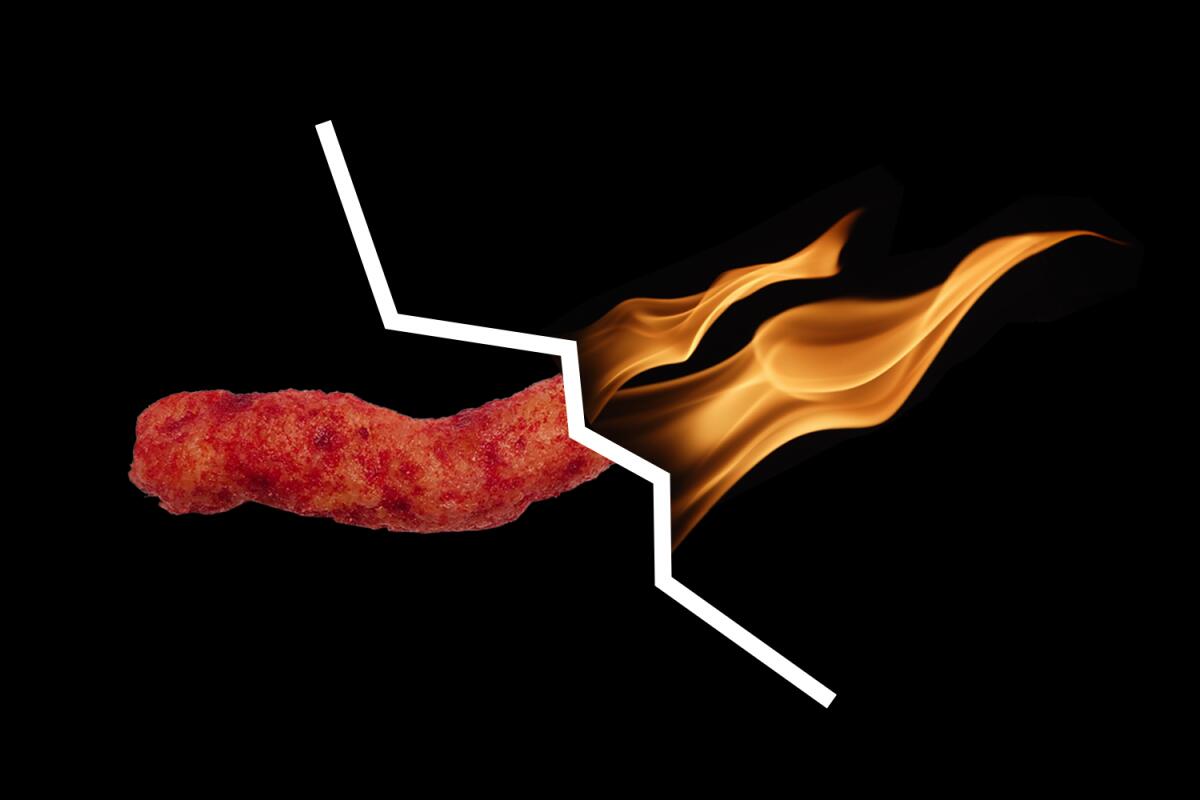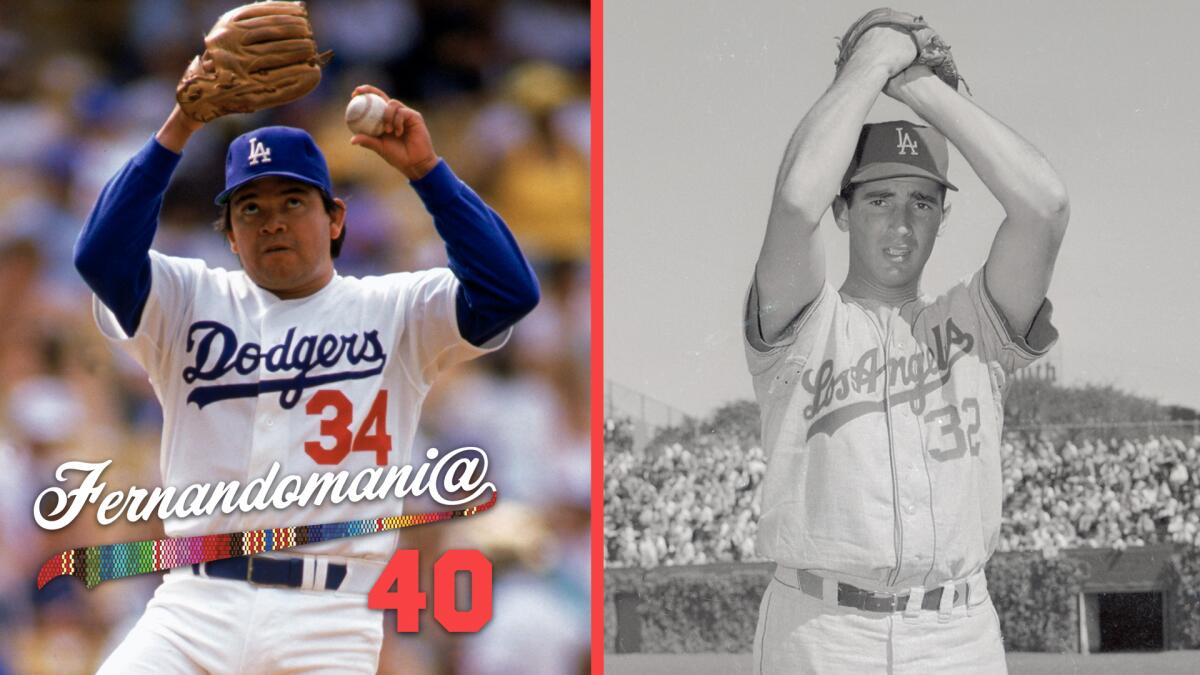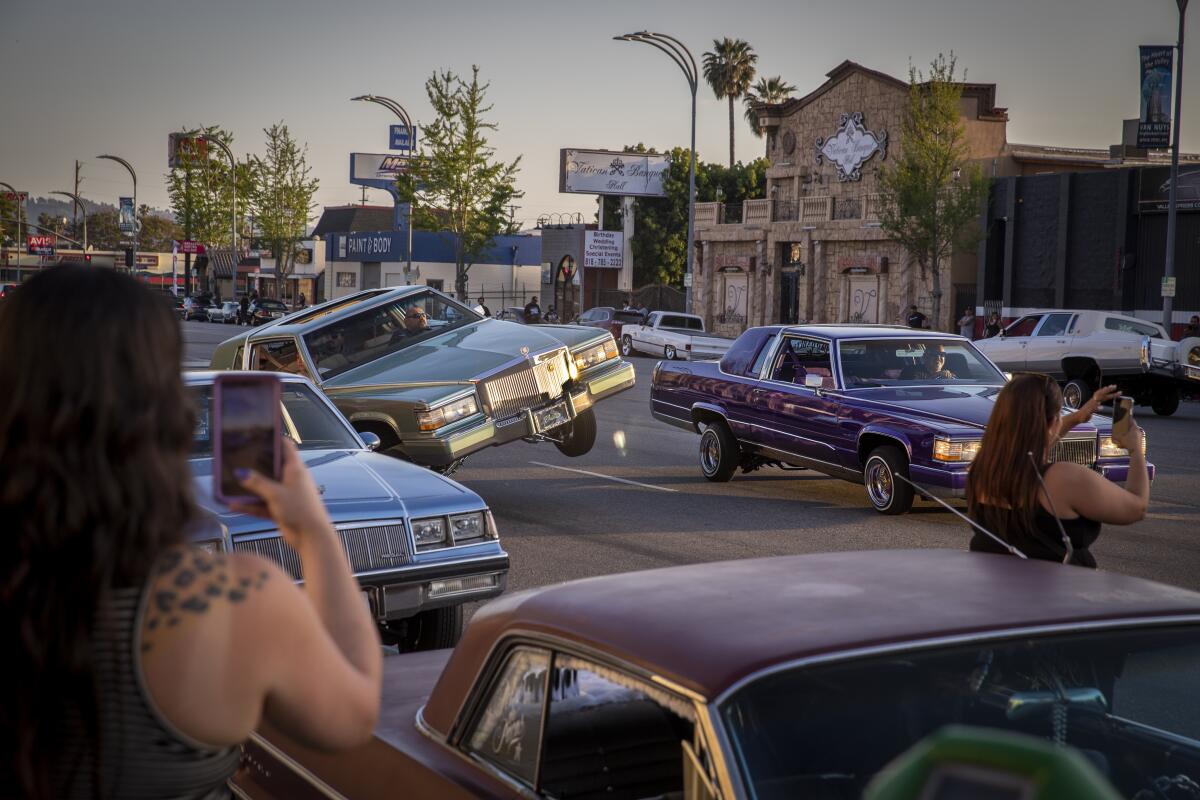Latinx Files: A flamin’ hot mess

- Share via
I was supposed to write about Latinx mental health awareness this week, but then the cheet’ hit the fan.
On Sunday, The Times published a story written by business reporter Sam Dean with the provocative headline “The man who didn’t invent Flamin’ Hot Cheetos.” It asserted that Richard Montañez, a former Frito-Lay executive who worked his way from being a janitor to the C-suite through sheer ganas and Mexican American ingenuity, didn’t actually invent the iconic snack.
Dean used “interviews with more than a dozen former Frito-Lay employees, the archival record and Frito-Lay itself” to support the story. He also reached out to Montañez on multiple occasions to get him on the record but never got a response. The Times stands by Dean’s reporting.
The story blew up. It’s one of the most trafficked stories on our site this week. It’s also converted more readers into subscribers than any other story for the same time period.
That it spread wasn’t particularly surprising. I previously worked at Mitú, a company that regularly pumped out content hitting on the Holy Trinity of memes that serve as Latinx cultural identifiers on the internet — Selena, Flamin’ Hot Cheetos and chanclas — because it consistently drove traffic.
This was always something I begrudged my old employer; I thought it to be too reductive of the Latinx experience. The irony that just about every edition of this newsletter contains the word “Selena” and that I am now writing about Flamin’ Hot Cheetos is not lost on me. (If I ever end up writing about chanclas, I swear to God...)
What did shock me was just how much people cared.
The Latinx experience chronicled
Get the Latinx Files newsletter for stories that capture the multitudes within our communities.
You may occasionally receive promotional content from the Los Angeles Times.
I first read the story on Sunday morning after a friend tweeted it out and immediately jumped on a group chat to crack jokes about it. We didn’t think much of it beyond the fact that it was great for banter. The way we saw it, if Montañez did in fact not invent Flamin’ Hot Cheetos, he at least took credit for the idea from a white person and made a fortune doing so. That to us felt like accomplishing the American Dream, and it was something we could get behind, and more importantly, laugh about.
But that was us.
As Sunday turned to Monday, my Twitter feed was dominated by a noticeable backlash to the story. This was no longer just a story about Richard Montañez. It was also a story about The Times needlessly taking down a person of color. The internet has a way of making things meta.
For some, this felt like another in a litany of examples of how The Times has done a poor job of covering the Latinx community. Much of this criticism is rooted in truth. This column by Gustavo Arellano from September outlines some of my employer’s past transgressions.
The optics of a white colleague writing a story that stripped a revered Latinx of an accomplishment that’s then credited to white people didn’t help. Neither did the fact that NPR’s Planet Money published a competing story on Montañez days before in which he is credited for the invention. (Planet Money has since added an editor’s note saying that they are reviewing their story to see if any changes need to be made in light of our story.)
It’s hard to convince someone who has felt slighted for so long to let go of their grudge, especially when it pertains to their sense of self. I know this firsthand. To this day, I hold ill will toward former Dutch striker Arjen Robben. His dive against Mexico at the 2014 World Cup not only robbed El Tri of finally getting to the promised land of the quarterfinals, but it was an affront to me, my family, my people and my ancestors. Short of him publicly admitting that he dove, there’s nothing that will let me superarlo.
My personal takeaway from this whole fiasco is that it’s clear I underestimated just how much Montañez means to people and is seen as a symbol of something greater. It was a reminder that my experience is my own and that it does not represent the totality of how Latinxs feel about things.
This hot flamin’ mess is also an indicator that The Times still has a lot of work to rebuild trust in the communities we cover. It’s being done — those efforts are featured on the newsletter on a weekly basis — but there’s a whole lot more to do. We just have to keep doing it.
In the meantime, if anyone reading this has something to get off their chest about this topic (or any for that matter), send us your thoughts and we’ll share some of the comments. You can email me at latinxfiles@latimes.com.
Consider subscribing to the Los Angeles Times
Your support helps us deliver the news that matters most. Become a subscriber.
Fernandomania @ 40: In search of the ‘Mexican Sandy Koufax’

The fourth episode of our multi-part documentary series “Fernandomania @ 40” is out today. You can watch here.
In it, we learn that prior to Valenzuela’s arrival, the Dodger fan base and the team itself were predominantly white. Walter O’Malley knew that if he wanted to attract the Mexican American community, he’d need to find a player they could connect with. It would take him more than two decades to do so. In the meantime, Latinx crowds turned to sports like boxing, wrestling and roller derby.
The episode also prominently features Jaime Jarrín, the legendary Spanish radio voice of the Dodgers who I just learned was previously a journalist who covered the Chicano Moratorium.
‘We can’t just pick up where we left off’
Times education reporter Melissa Gomez has this sobering Column One on a predominantly Latinx Pico Rivera school district that is opting to not reopen for the rest of the school year because too many members of its community have died or are dealing with the loss of a loved one because of COVID-19.
“The families of Pico Rivera suffered many losses throughout the COVID-19 pandemic,” Supt. Frances Esparza of El Rancho Unified School District told Gomez. “Some of the students in El Rancho lost a parent, a grandparent and some even lost both in just a few days. The staff of El Rancho Unified have also suffered the losses of family, friends and co-workers.”
You can find more of our COVID-19 coverage here and sign up for our Coronavirus Today newsletter here.
Things we read this week that we think you should read
— LAist has this story on the growing movement advocating for ending the practice of sending armed officers to respond to psychiatric emergencies. It centers the tragic death of David Ordaz Jr., who was shot and killed in front of his Montebello home by Los Angeles County sheriff’s deputies who had been called in to help.
— Congrats to Oaxacan restaurant Guelaguetza, winner of the 2021 Jonathan Gold Award, which is named after the late Times food critic and is given to a local chef or restaurant “with the idea of honoring culinary excellence and expanding the notion of what Southern California cooking might be.”
If you’ve never been to the Koreatown staple, I highly recommend it. Their mezcal selection alone is just *chef’s kiss*.

— Culture reporter Daniel Hernandez headed to the San Fernando Valley’s Van Nuys Boulevard, where the lowriders have returned for a monthly cruise night. He was joined by Times photojournalists Allen J. Schaben and Myung Chung to bring you the full visual experience. If you close your eyes, you can almost hear Malo’s “Suavecito” playing in the background.
Hernandez also met up with legendary photographer Estevan Oriol to talk about the most iconic lowrider moments in film and television history.
— Kate Linthicum, a Times correspondent based in Mexico, has this deep dive into how Salvadoran President Nayib Bukele leveraged his advertising background and mastery of social media to get power.
— Vaccination rates are especially low among Latinx men in L.A. County, writes Metro reporter Alejandra Reyes-Velarde. Just 39% have gotten at least one shot, compared to 59% of white men, as of May 9.
The Latinx experience chronicled
Get the Latinx Files newsletter for stories that capture the multitudes within our communities.
You may occasionally receive promotional content from the Los Angeles Times.







